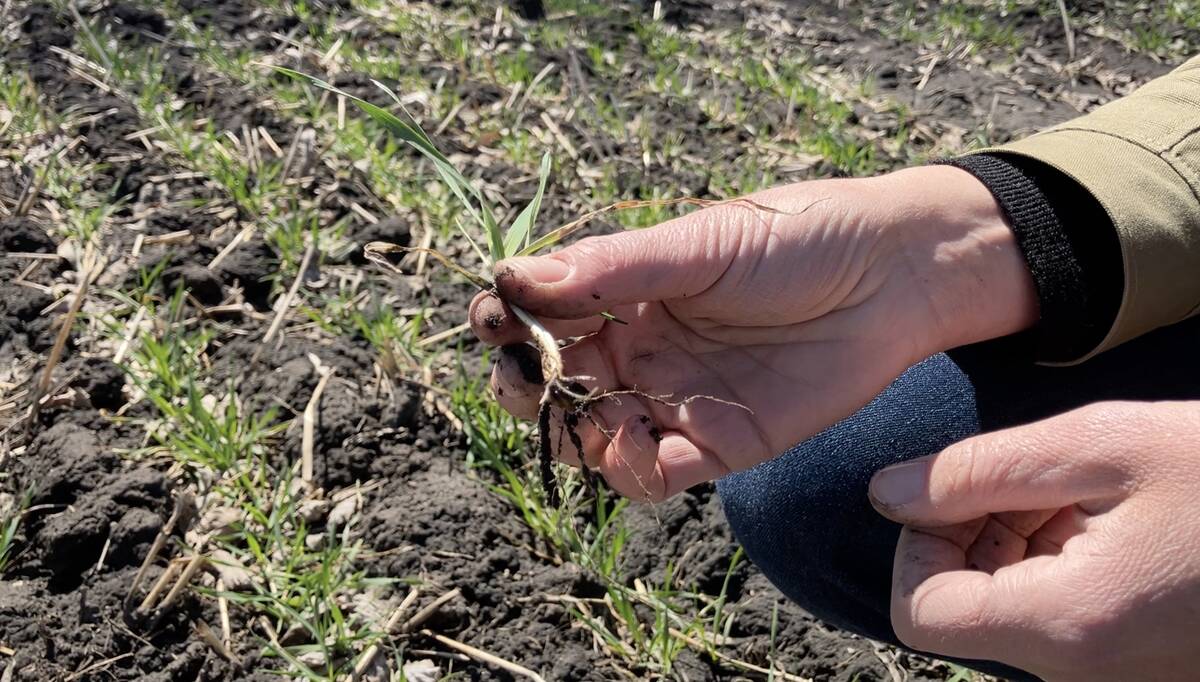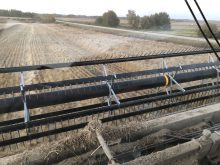If you’ve already read Allan Dawson’s story featured on the front page of our Mar. 10 issue of the Co-operator, there’s a fairly high likelihood you’re feeling a bit sour.
In it he details the work done by agricultural economist Ryan Cardwell on the topic of ‘rent-seeking’ behaviour generally, and how farmers are particularly good at it.
It’s not a particularly flattering portrait. Rent-seeking is, in broad terms, defined as an effort to increase one’s share of existing wealth, without creating new wealth. It’s a moving around of the deck chairs, a subtle tilting of the playing field in one’s own favour.
Read Also

Canadian government got it wrong on public plant breeding
Cuts to Agriculture and AgriFood Canada will undermine Canadian agricultural productivity, says National Farmers’ Union member Dean Harder.
It’s hardly unique to agriculture. The fact that a lobbyist registry exists in Ottawa is all the proof any reasonable person needs that our country is full of individuals, groups and companies that fight their own corner. It was ever thus, and it’s unlikely to change any time soon.
But in the case of the country’s farm sector, it’s a dynamic that’s going to require a fair bit of conscious effort to manage, especially in the next few years.
Think of another sector with a very effective lobby — Canada’s telecom providers. They have, at this point, so effectively captured their regulator, the CRTC, that it’s in the eyes of many effectively a government-funded lobbying arm of the big three providers that are colloquially known as RoBeLus (Rogers, Bell and Telus).
The result is some of the highest mobile data prices in the world, and a startling lack of any meaningful competition in a host of what should be considered public utilities in the digital age.
In the meantime, the companies have come to be caricature-level villains in the imagination of the Canadian public. They might as well be tying fair maidens to the railway tracks while cackling and twirling the tips of their moustache. To put it bluntly there’s near-zero sympathy for these organizations, and eventually that will catch up with them.
They’ll continue to milk the status quo, and throw up every possible roadblock to reform, but just as the formerly lucrative cash cow of long-distance rates gave way to unlimited Canada-wide calling, change will inevitably come.
Right now the country’s farmers still enjoy an enviable level of government support. As Cardwell noted in his lecture, that support remains durable, and even impermeable to evidence, especially in the realm of supply management.
But he also notes that these policies have unintended consequences. Such as using government policy to transfer wealth from consumers to farmers who are already, by any objective measure, wealthier than most of those consumers.
And he also noted that goes beyond supply management to the primary agriculture sector as a whole. In particular, he noted most farms benefit from subsidized crop insurance, with taxpayers picking up a hefty slice of the costs. As he correctly states, other small businesses are also enormously risky, and none of them have similar risk management programs.
Just how to manage this is going to be a work in progress, of course, but a good starting point is taking a look in the mirror, and understanding the relative position of farmers as compared to the rest of society, and striking an appropriate tone.
It won’t do to be seen as ungrateful or contemptuous of other taxpayers, because that will over time undermine that support.
It’s also going to be important not to be seen as tone deaf. It’s tempting for the sector, when hard times hit, to cry woe and paint itself as the stereotypical ‘poor farmer.’ But the truth is that a lot of folks find themselves stretched awfully thin these days.
They can understand food security issues, and the need to be on a level playing field with other jurisdictions. But they’re likely to side-eye any farmer crying poverty from the cab of a $50,000 pickup truck while they’re scrounging for bus fare to get to their minimum wage job.
Agriculture is a high-risk business, and many of those risks are due to factors outside of your control, like weather, capricious markets and international trade disruptions. Most Canadian taxpayers understand that, and support giving you the programs you need to ensure you and your business weather those storms.
But making sure it stays that way is up to you. That means you’re going to need to be seen as part of society, willing to make similar contributions to it. That’s going to mean being seen as part of the solution, rather than part of the problem, as the country grapples with issues like environmental policies and climate change.
That doesn’t mean giving away the farm. But it might mean working through your industry groups to craft win-win policies that make farms more environmentally and economically resilient, while delivering the results Canadian society expects.















